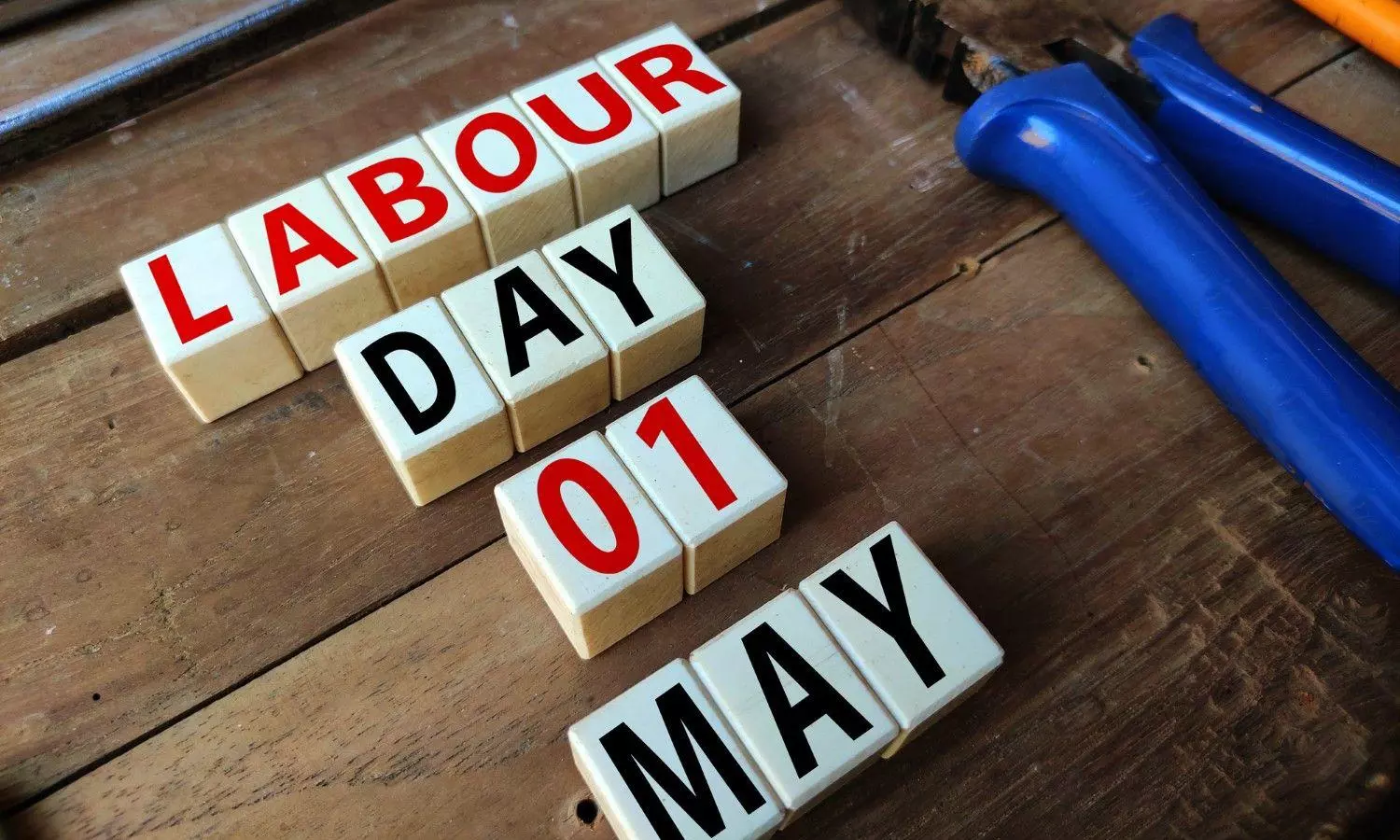
May Day 2025: Why is May 1 celebrated as Labour Day?
May Day remains a powerful reminder of the ongoing struggle for fair wages, safe working conditions, and social justice

Every May 1, International Labour Day, also known as May Day, is celebrated across the world.
Workers across the world unite in solidarity to celebrate International Workers’ Day — an occasion that honours the historic struggles and achievements of the labour movement.
Rooted in the fight for an eight-hour workday, this commemoration remains a powerful reminder of the ongoing struggle for fair wages, safe working conditions, and social justice.
This day serves as a tribute to the hardworking individuals whose dedication and sweat have shaped societies and economies across the globe. It's not just about acknowledging their hard work, but also empowering them to be aware of their rights.
Also Read: International Labour Day: History, significance, and more
Origin of May Day
The origins of May Day can be traced back to the late 19th century, specifically to the 1886 Haymarket Massacre in Chicago.
Thousands of blue-collar workers in the industrial city of Chicago in the United States went on a massive strike to demand better working conditions and a reduction in their work hours from 12-15 hours a day to eight hours daily.
The movement spread throughout the country, rallying tens of thousands of workers.
On May 4, 1886, a bomb blasted at a protest rally at the Haymarket Square in Chicago and ended in a riot as workers clashed with the police.
Haymarket massacre
At least 11 people were killed. The incident, which came to be known as the Haymarket massacre, is regarded as the reason why May 1 is recognised and celebrated as Workers’ Day.
The Second International (an organisation of socialist and labour parties) that emerged in 1889 declared May 1 as International Workers’ Day to honour the struggle for labour rights and as a tribute to those killed in Chicago.
Watch Here: Madras and May Day are inseparable; find out why
Significance of the day
International Workers’ Day serves as a reminder of the progress made in securing labour rights and protections, as well as the ongoing struggles faced by workers in various industries and regions, especially in today's rapidly transforming workplaces shaped by technology and globalisation.
It recognises the sweat, toil, and sacrifices of workers and serves as a rallying call for social justice, fair wages, and safer working conditions.
It is also geared towards inspiring efforts to provide better working conditions to labour and help them make progress.
Also Read: For Indian labour, May Day will never be the same again
Unions around the world use May Day to raise awareness about the important issues they face in the workplace, demand fair wages and present ideas to improve the lives of workers.
Labour Day around the World
India: May Day is a public holiday in several states, marked by processions, speeches, and cultural events organised by trade unions and workers’ associations
Europe: Countries like France, Germany, and Italy observe May Day with massive demonstrations advocating for workers’ rights social justice and labour reforms
United States: Although Labour Day is officially in September, many labour activists and organisations commemorate May 1 with rallies focusing on immigrant rights and workers’ movements
Latin America: Countries such as Mexico, Cuba, and Brazil celebrate May Day as a major public holiday with parades, speeches, and community events
Africa and Asia: Workers’ contributions to nation-building are celebrated, with events demanding better protections and socio-economic reforms
Impact of changing work cultures
The focus for Workers’ Day 2025 resonates strongly with the ongoing transformations in the workplace. Rapid technological advancements, the rise of artificial intelligence, and the gig economy present both opportunities and challenges for today’s workforce.
Key areas of focus with the advent of artificial intelligence
Job security amidst automation and AI adoption
Skill development to future-proof workers’ careers
Rights of gig workers and freelancers in a fluid economy
Mental health and fair compensation in remote and hybrid work models
Workplace diversity and inclusion for marginalised communities
May Day urges us to continue advocating for workers' rights in an ever-changing world.
Also Read: May Day: What's behind the layoff tsunami, and 4 ways techies can navigate it
It reminds policymakers, corporations, and societies that technological progress must be matched by strong protections and rights for workers to ensure inclusive growth.

